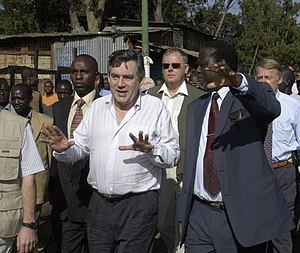 Image via Wikipedia
Image via Wikipedia
Security – particularly in the United States – got tighter than ever before over the days, weeks, months and years following the attacks on the World Trade Center and the Pentagon on September 11, 2001.
Never in recorded history had humankind been on such a high state of alert. At one point in time, we even had to remove our shoes – our shoes – prior to boarding an airplane.
Then, just as the world’s attention was focused on the holiest day for Christians – Christmas – the world was reminded just how important these measures are, as a man lit what initial reports claimed to be “fireworks” aboard an American flight over western Canada.
One wonders how on Earth – or rather about 30,000 feet in the air – someone can even get on an airliner with anything remotely flammable with all these security precautions.
And far worse, the ramifications since the Christmas Day fire cracker stunt may have gone too far, with little effect. In some American airports, security guards are even testing baby milk brought onboard flights. Maybe if you are real nice, they’ll feed and burp your infant?
Reportedly, British Prime Minister Gordon Brown was briefed weeks ago about increased terrorist activities involving bombing attempts and American-bound flights. The reports said that secret terrorist cells had devised a new way to bypass security measures to get explosives on planes, and that these terrorists were conducting training exercises to ensure success.
The recent attempt this holiday season may have been the terrorist’s first attempt or a trial as part of their training exercises.
Either way, it sure got the world’s attention.
The real problem isn’t going to be fixed by adding more security – though that will be the immediate visible solution. For every additional security measure taken, eventually those unscrupulous minds that want to do harm, will.
For every creative and innovative step taken to prevent a terrorist strike, there are just as creative and innovative people at work figuring out how to circumvent these steps.
The only real way to prevent terrorist attacks of airplanes is to stop flying. And that’ll never happen, because air travel is an important necessity in our global village.
Well, there is one other possible way to put an end to terrorist attacks – world peace. If we could only ever achieve a world that truly is at peace, then, and only then, would we ever really be safe from the harm done by those non-peaceful terrorists.
But world peace will never happen either. There is more to peace than sitting around a campfire, roasting marshmallows and singing Cume-By-Ah.
With deeply held religious beliefs – some may even go so far to call ‘em cult-like beliefs – behind many wars around the world, some wars will never end despite all the attempts at peace.
Then you have beliefs so deeply entrenched in a person’s life, they are willing to actually die for them. Like those who killed by flying planes into the World Trade Center in 2001.
Stopping a belief – no matter how wrong – is virtually impossible. A belief is the foundation towards ideas, and ideas lead to actual solutions to problems.
And those problems, for the terrorists, are how to constantly counter all the security measures so they can fulfill their beliefs. So we come full circle, over and over again.
Because the American named “war on terror” isn’t really about people, bombs, planes, or peace. It’s all about beliefs.
![Reblog this post [with Zemanta]](http://img.zemanta.com/reblog_b.png?x-id=be0eca93-da56-438e-b8b0-e40b63bf8b17)

![Reblog this post [with Zemanta]](http://img.zemanta.com/reblog_b.png?x-id=a7fcbac6-5a8b-4f56-9145-6546fbe0b5cc)

![Reblog this post [with Zemanta]](http://img.zemanta.com/reblog_b.png?x-id=7c792ad0-71e5-4305-924b-452247f8c7cb)







